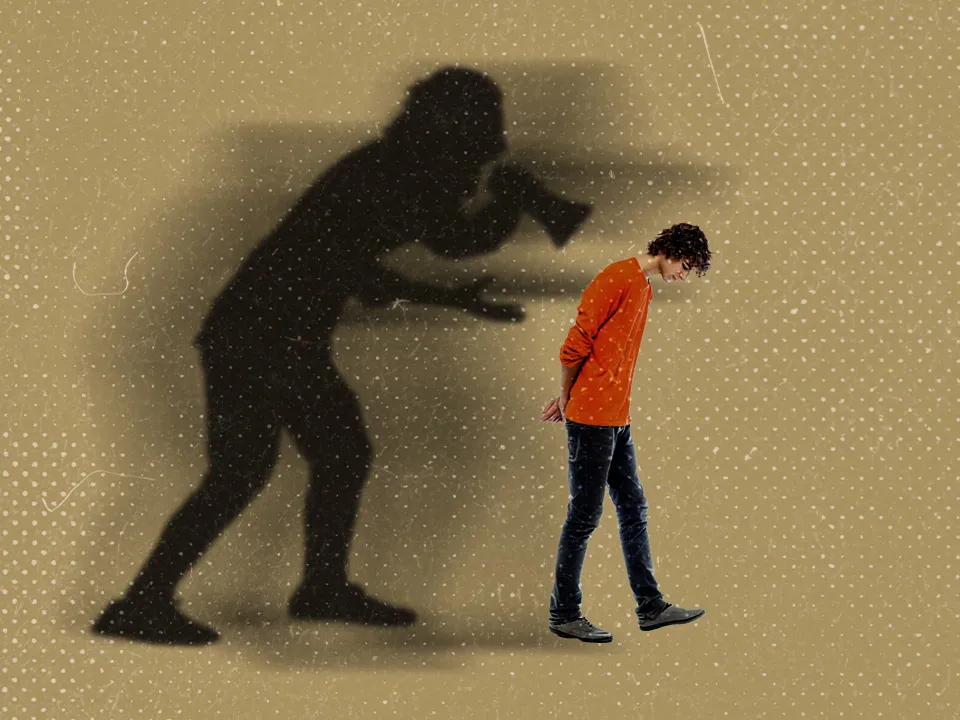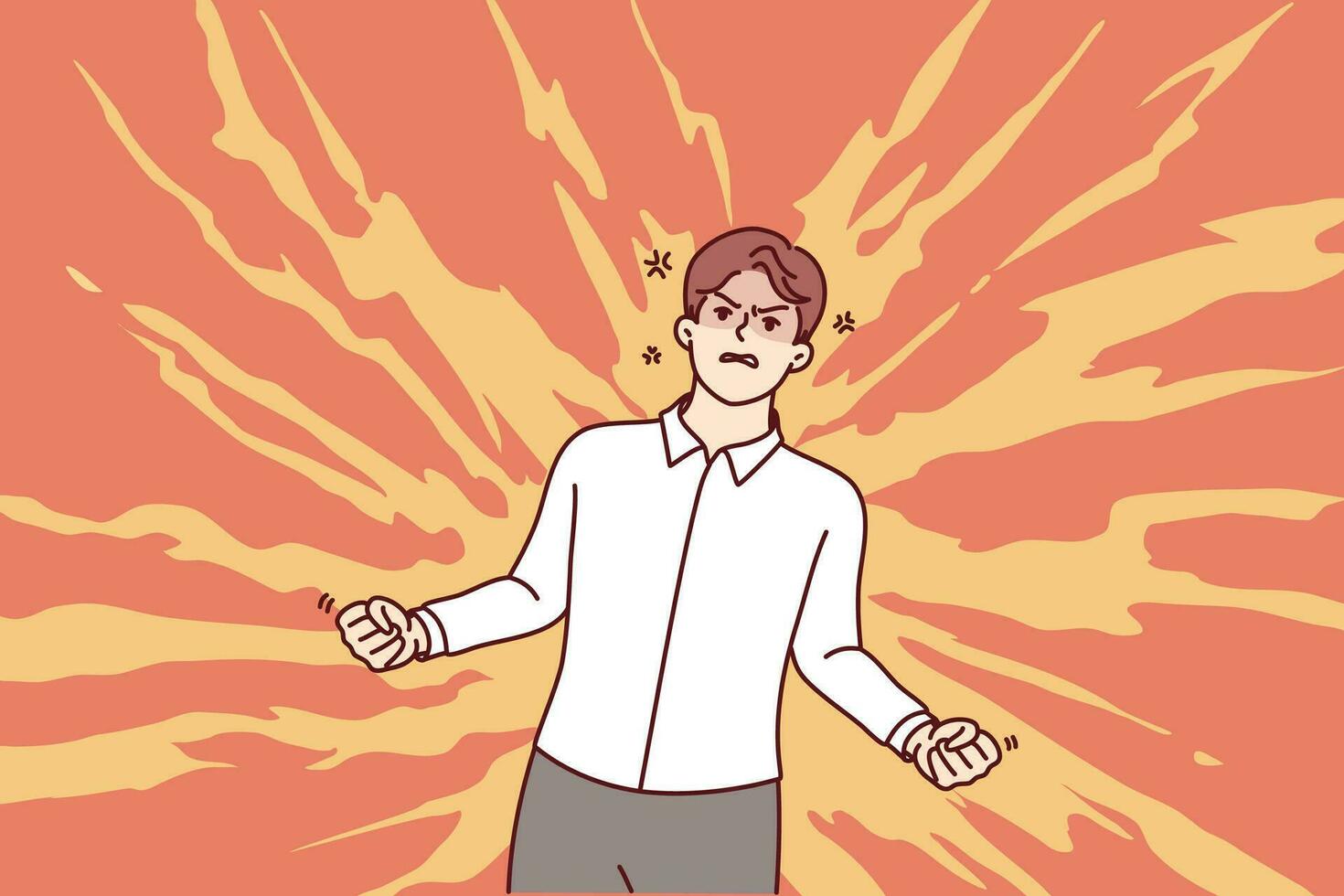Have you ever encountered people whose behavior is full of anger and hatred and whose presence annoys you? People who are spiteful and angry most of the time. What is the reason for people’s grudge and their continuous anger?
It may seem that people are always angry and spiteful for no reason, but there are deeper reasons behind these behaviors. Hate is not an emotion that arises randomly or for no reason; Rather, it is often the result of unresolved psychological, emotional and social problems.
In this how-to article, we’ll explore the 13 key reasons behind spiteful people’s hatred and help you better deal with such people by better understanding these roots.
1. Resentful people are full of insecurity
Resentful people who hate others usually have a deep sense of insecurity within themselves. These people often cannot face their personal flaws and shortcomings. As a result, to avoid facing this negative feeling, they transfer this feeling to others. For example, if a person feels that they are not competent or attractive enough, they may put others down to make themselves feel better.
This behavior is like a shield to protect against weaknesses, but actually this shield isolates them. Such a person should know that accepting weaknesses and working on them is a better path for personal growth.
2. They cannot let go of past problems and sufferings
Past trauma and suffering, if left unresolved, can lead to hatred and resentment. People who have experienced such issues are usually stuck in the past and look at people and the world as the culprit. Instead of trying to heal and release, these people cling to their wounds and make it a part of their identity.
Letting go of past hurts requires practicing forgiveness and acceptance. Forgiveness frees not only others, but also oneself. However, many narcissists don’t do this because they don’t want to risk change and losing control.
3. Fear of losing control
For some people, hatred, resentment and anger are tools to maintain control over others. When life gets messy, vindictive people try to take control by instilling fear or humiliation in others. But it is only an illusion and ultimately does not lead to more control.
Fear of vulnerability is one of the main reasons behind this type of hatred. People think they will look weak if they don’t control others. Accepting vulnerability and learning to trust others can help this person break out of this negative cycle.
4. The effect of toxic environments

The environments in which anyone lives or is constantly involved can have a great impact on the formation of his personality and attitude. If someone lives in an environment full of negative energy, blame and hatred, these behaviors will become natural for him over time.
It may be difficult to leave such environments because one feels safe in the environment to which one is accustomed. With so many changes in the environment and being in the company of positive and inspiring people, it can help to rebuild one’s attitude.
5. Jealous of the success of others
Jealousy is one of the main triggers of hatred. Envious people feel the need to attack others instead of being inspired by their success. This jealousy may arise due to seeing other people’s professional success, successful romantic relationships, or even happiness.
Instead of focusing on personal growth and development, such people spend their energy on destroying others. If these people learn to focus on their own goals and abilities, they may not only be freed from jealousy, but also experience true happiness.
6. Feeling powerless in life

Some people feel that they have no control over their lives. This feeling of helplessness can lead them to hatred and anger. In such a situation, hatred appears as a possibility to regain a sense of power.
These people should know that facing real problems and working on themselves is the best way to regain a sense of empowerment.
7. Interest in attracting attention
For some, hate is a way to get attention. Such people seek to be seen by creating conflicts or publishing provocative comments in cyberspace. This type of behavior is usually formed due to lack of self-esteem and need for approval from others. In such a situation, people think that negative attention is better than no attention at all.
Negative attention may fill a person’s void for a short time, but eventually these people will feel more alone and isolated than before.
8. self hatred

Self-hatred is one of the basic factors behind hating others. People who are not satisfied with themselves transmit this negative feeling to others. Such a person may not consider himself worthy of love and respect and show this feeling as a reaction to others.
Self-acceptance is the first step to get out of this negative cycle. A person who hates himself cannot love others.
9. Closed and inflexible mind
Resentful people usually have a dry and inflexible mentality. They see the world in black and white and cannot understand or accept differences. Such people see life as an equation of friendship and enmity, love and hate, war and peace.
This way of thinking can lead to fear of the unknown and of course inflexibility, inflexibility which leads to lack of growth, enmity and hatred of this enemy.
Practicing flexibility and trying to understand other people’s points of view and accept different opinions can help reduce these fears and thus hatred.
10. Projection of failures

Some people cannot accept responsibility for their failures and instead blame others for their failures and failures. This behavior acts as a defense mechanism that prevents such people from facing real problems properly.
Accepting responsibility and trying to change is necessary to get out of this vicious cycle. It has been said since ancient times that failure is a bridge to victory. As a result, you should accept every failure and move towards victory by improving the weak points.
11. Victim syndrome
A person who considers himself a victim may use this identity to justify his constant hatred, anger and resentment. These people see the world as their enemy and time, chance and everything as their obstacle. In such a situation, it is natural that instead of trying to progress and succeed, they think of themselves as victims and hold grudges against the world, people, everything and everyone.
Letting go of this mentality and accepting responsibility for mistakes and failures can help such people to focus on growth and change instead of hatred and resentment.
12. Fear of vulnerability and revealing human weaknesses

Hate can be a cover to avoid vulnerability. Some see kindness and understanding as weakness and prefer to protect themselves with hate. Although such a solution may seem like a kind of exercise of power and is evaluated as effective, it will not be so in the end.
Accepting vulnerability as part of being human can help people build healthier relationships.
13. Losing hope
When people lose hope for a better future, hatred replaces it. Instead of trying to change, they blame the world and take their anger out on others.
Restoring hope and finding meaning in life can help this person get out of this negative cycle.
malice and hatred; Deep wounds that need healing
Hate is often a reflection of unresolved issues and problems and deep inner wounds. Knowing these roots helps us deal with this person with more kindness and understanding.
Remember, hatred does not exist by itself; Rather, it is a feeling that is the product of human pains, fears and insecurities. Perhaps by supporting and creating opportunities for change, we can help reduce this hatred and build a kinder world.

In depression, sadness penetrates into the deep layers of life and creates disturbances in your emotions and behavior. If you feel depressed, be sure to find the root of the problem with the help of a specialist psychologist and find a solution to it. Click on the button below to contact a depression specialist consultant.
Source Link

